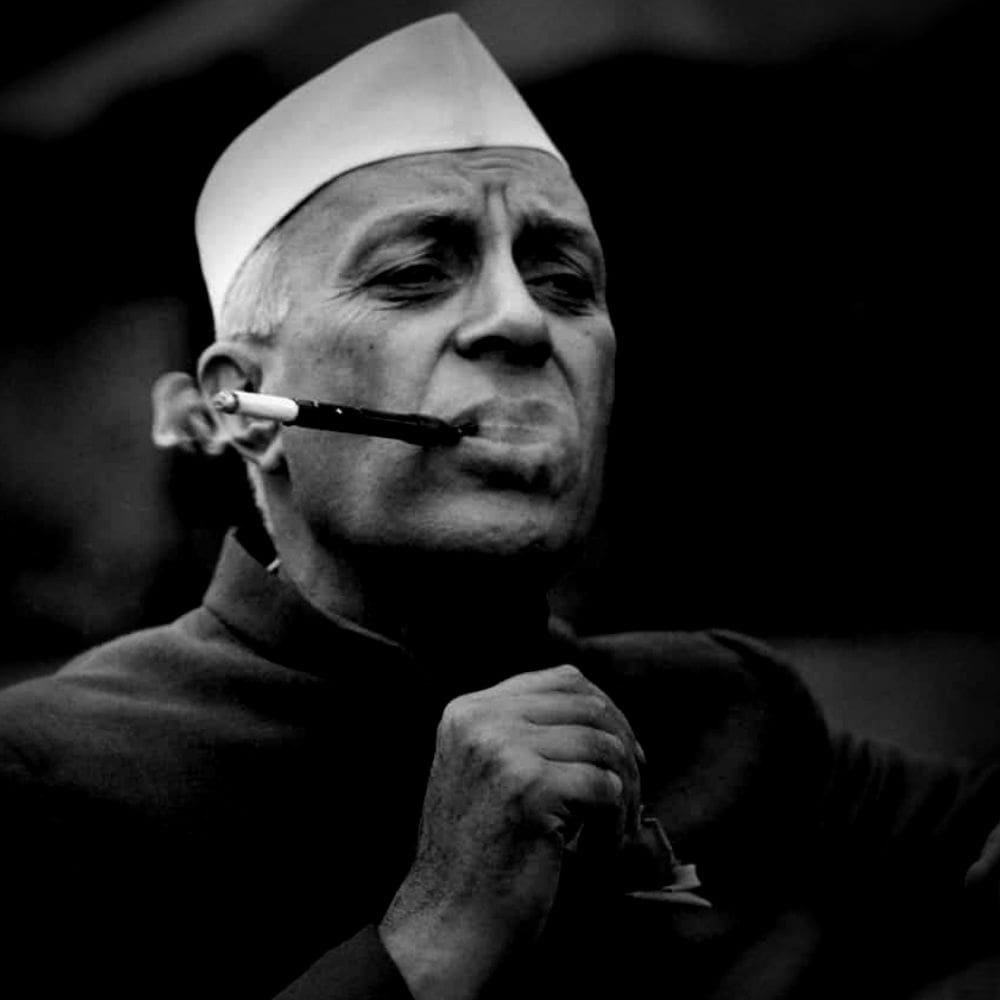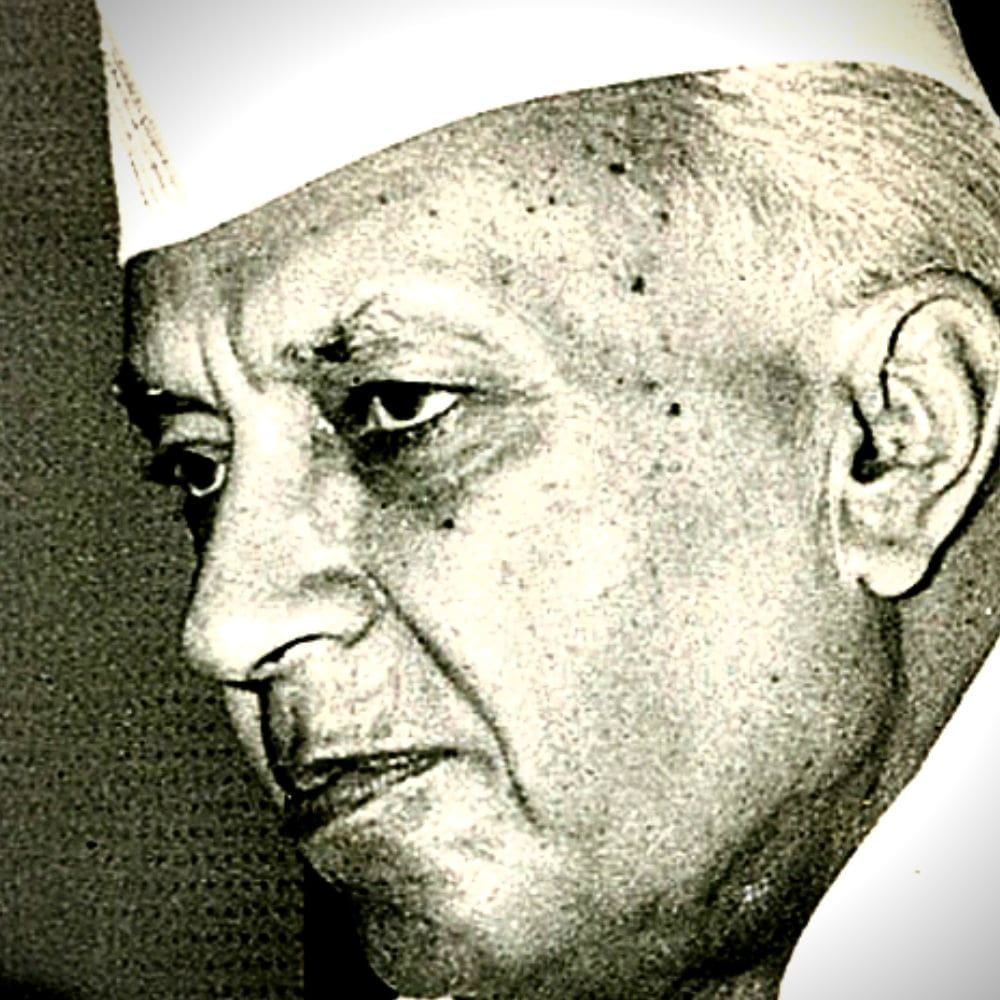CORRUPTION IN THE “GOOD” OLD DAYS
Corruption is worse than prostitution. The latter might endanger the morals of an individual, the former invariably endangers the morals of the entire country.
—Karl Kraus, 19th century satirist
Nehru did not mind others dirtying their hands to raise funds for the Congress Party and for other purposes—what mattered was power for the Congress and himself.
From the very beginning of his Prime Ministership Nehru adopted a queer and casual approach towards corruption. A resolution on the ‘standards of public conduct’ at the 1948 Congress session that exhorted ‘all Congressmen, members of the central and provincial legislatures and more especially members of the Cabinets… to set an example and maintain a high standard of conduct’ was accepted by a majority of 107 against 52. Such a sane and desirable resolution was, however, withdrawn the next day after Nehru threatened to resign, saying the resolution amounted to censure of his Government. One wonders why the Congress members bent down to an unreasonable demand. Nehru was certainly not indispensable— he should have been allowed to resign.
There were many cases where Nehru condoned corruption. Or, defended those accused of it. This tended to make corruption acceptable. In a way, the foundation of corruption were laid during Nehru’s time, although, unlike Manmohan Singh, Nehru had almost unlimited powers to carry through whatever he wanted.
Sardar Patel’s correspondence of May 1950 with Nehru brings out instances where the National Herald (NH) was used as a tool for collecting money on a quid pro quo basis—awarding government contracts to undeserving elements. Feroze Gandhi, Nehru’s son-in-law, was then the General Manager of NH. Nehru was not personally involved, but rather than putting his foot firmly down on the impropriety, he tended to soft-paddle the matter, and shielded those responsible. It also brings out Sardar Patel’s high standards of probity in public life.
A number of his colleagues and confidants at the Centre and in the States were not above board, but Nehru ignored their misdemeanours. Krishna Menon had engaged in a number of shady deals while in London as High Commissioner. Jeep Scandal Case of 1948 was only one of the scandals. KM finalised a Defence deal with a firm in London with capital assets of barely £605 and placed orders in July 1948 for supply of 2000 rugged, all-terrain army jeeps urgently required for Kashmir operations within five months, with deliveries to commence within six weeks. Menon paid a large sum of £1,72,000 to the supplier upfront, before even a single vehicle was delivered. The first batch, which was to arrive in India within 6 weeks, arrived in March 1949, after 8 months, by when ceasefire in J&K had already been declared—on January 1, 1949. The initial batch of 155 jeeps that landed at Madras port were found to be all unserviceable. Defence official, who inspected the jeeps, rejected the entire shipment. PAC (Public Accounts Committee) conducted an enquiry, passing severe strictures, and recommended judicial enquiry to fix responsibility for the scam. But, the Government did nothing. When there was a clamour in the Parliament, the Government simply tabled its note to PAC to reconsider its recommendation, and asked the House to treat the matter as closed! This was in 1954. PAC, however, again revived the issue in its next report to the Parliament in 1955. Thereupon, the Home Minister Pant, at the instance of Nehru, simple announced in the Parliament that the Government had taken a final decision to treat the matter as closed! How could government close a clear case of gross corruption without taking any action, ignoring PAC’s recommendations—but, those were the Nehruvian days!!
Mundhra case related to the impropriety of investments by the government-owned LIC into the companies of a financier-investor Haridas Mundhra. The then Chief justice MC Chagla constituted the one-man Tribunal to enquire into the case in 1958. The Tribunal conducted its proceedings in a thoroughly professional manner, and in public, and submitted its report in a record time of one month. Nehru, rather than being appreciative of the exemplary working of the Tribunal (that should have been followed by subsequent such tribunals/enquiry commissions—but, were not), and praising and rewarding Chagla for the same, was cross with him. Why? Tribunal’s findings were adverse, and reflected badly on the then Finance Minister TTK Krishnamachari. Wrote MC Chagla:
“…Nehru addressed a meeting at the Indian Merchants’ Chamber, where… he went out of his way to pay a high complement to TTK. I cannot help remarking that it was hardly proper, when a judicial inquiry was being held involving the conduct of a Minister, for the Prime Minister to pay that very Minister [TTK] a compliment in public…
“…I know Nehru was very angry with me, and did not hesitate to show his displeasure. When TTK ultimately resigned, the Prime Minister went to the airport in person to bid him farewell, a gesture that was unique in the annals of our parliamentary history… But all this did not worry me. I had done my work conscientiously, and had come to my conclusions irrespective of whether they pleased or displeased the Prime Minister or anyone else…”
Rajaji was against Nehru’s License-Permit-Quota-Raj not only because it grievously hurt the economy, but also because it was a huge source of corruption. But, it went unchecked. Remarked Rajaji: “Congressmen look so well off. Have they taken up new avocations and earned money? Then how have they earned money?”Rajaji had concluded that it was the socialistic pattern, where the state controlled, ‘permitted’, and farmed out business that was enriching Congressmen, officials, and favoured businessmen, and harassing the rest.
This is from ‘The Hindu’ of 9 January 2010, which reproduces what it had said over 50 years ago in its issue of 9 January 1960:
“Prime Minister Nehru categorically ruled out any proposal for appointing a high power tribunal to enquire into and investigate charges of corruption against Ministers or persons in high authority, for the main reason that, in India, or for that matter any other country where there was a democratic set-up, he could not see how such a tribunal could function. The appointment of such a tribunal, Mr. Nehru felt, would ‘produce an atmosphere of mutual recrimination, suspicion, condemnation, charges and counter-charges and pulling each other down, in a way that it would become impossible for normal administration to function.’ More than half the time of the Press conference was devoted by Mr. Nehru to deal with this question of appointing a tribunal to enquire into cases of a close colleague.”
AD Gorwala, a civil servant, stated in his report to GoI: “Quite a few of Nehru’s ministers were corrupt and it was common knowledge”. The Santhanam committee, appointed by the Government in 1962 to examine corruption, said: “There is widespread impression that failure of integrity is not uncommon among ministers and that some ministers, who have held office during the last sixteen years, have enriched themselves illegitimately, obtained good jobs for their sons and relations through nepotism and have reaped other advantages inconsistent with any notion of purity in public life.”
Nehru had commented thus on the charges against Pratap Singh Kairon: “The question thus arises as to whether the chief minister is compelled to resign because of adverse findings on some questions of fact by Supreme Court. The ministers are collectively responsible to the legislature. Therefore, the matter was one which concerned the assembly. As a rule therefore, the question of removing a minister would not arise unless the legislature expressed its wish by a majority vote.”
So, even if a minister is corrupt he can’t be removed, unless voted out! So you can buy immunity by manipulating or managing votes. When severe allegations were levelled against Kairon by the critics within the Congress itself, Nehru pooh-poohed them and resisted any enquiry—Kairon had to ultimately resign following Das Commission’s findings.
In UPA-I and II, PM Manmohan Singh had advanced excuse of Coalition “Dharma” for corruption—as if Congress people were above board—but in the days of Nehru, Congress was super strong, opposition hardly existed, and Nehru was an unchallenged leader. Nehru could have easily nipped the malaise of corruption in the bud. Sadly, he chose to tolerate it.
Wrote Maria Misra:
“By the early 1960s the Nehruvian project was unravelling. The third plan was in crisis, agricultural reform had stalled, and grain output actually declined in 1962-63…inflation was running at 9 per cent…Congress was confronting a crisis of rising expectations at the very moment that its own reputation was at its lowest, dogged by corruption scandals at every level…The culture of corruption…had begun to penetrate society more deeply. In 1961 the great novelist R.K. Narayan published Mr Sampath, a grimly comic depiction of a city milieu. The eponymous anti-hero is shown to be wholly immersed in fraudulent city life, a liar and an opportunist…Bimal Roy’s film Parakh (Test, 1960) dealt with similar themes…offering a scathing satirical attack on venal politicians allied with vested interests…Nehru’s non-aligned foreign policy was in disarray, his domestic policy in tatters, and Congress in decline…”
The then President of India, Dr Rajendra Prasad had written to Nehru that corruption ‘will verily prove a nail in the coffin of the Congress.’ For inquiry into charges of corruption, he strongly advocated the proposal for a tribunal or an Ombudsman under the President or under an independent authority, as suggested by CD Deshmukh. Rather than replying to the President’s note in the matter, Nehru chose to complain to him for his ‘unfriendly act’ of sending such a note! Dr Rajendra Prasad wrote to Nehru on 18 December 1959:
“…I must say that I am somewhat disappointed. The question of corruption has been too prominently and too long before the public to brook any further delay in making a probe into it. I think Deshmukh has given enough details about cases to be traced and once the Government makes up its mind and gives immunity to informants against vindictive action, proofs will be forthcoming. I would therefore suggest that thought be given to finding out cases. It is not enough that you are satisfied that all is well. A popular Government’s duty is to give satisfaction to the people also…I have been worried by your suggestion that I should send for you and speak to you if I have anything to communicate rather than write. I am afraid this will stultify me in performing my constitutional duty…”



